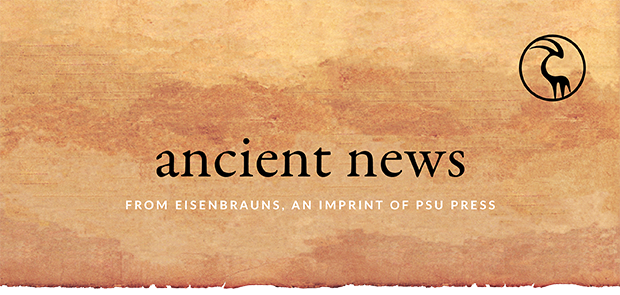
general news
Welcome to the December issue of Ancient News.
We truly miss seeing you all at conferences, especially AAR/SBL! Until we can safely gather again, we hope you’ll visit our virtual exhibit booths. Browse our ASOR and AAR/SBL virtual exhibits via the links, and check out the full list of sales and specials here.
Instead of our usual Two-Week Sale, we’re offering 45% off all books through 12/21! It’s our way of wishing you a happy holiday season, and of celebrating our 45th year of publishing good books. Use code EB45 to save on your entire order through eisenbrauns.org. We’ve even made the decision-making easy for you with this list of some of our favorites, including 15 books hand-picked by James Spinti. Find out about all our sales and new releases by updating your BookNews subscription.
Scroll down to see a handful of new books publishing this month, plus a few that came out in November. If you have an idea for a book, let Jen Singletary, our acquisitions editor, know.
Rounding out this month’s Ancient News is a pair of PSU Press books that you’ll want to look out for in Spring. And if you haven’t gotten a chance to look through our 2020 Catalog, read it here.
Enjoy!
The Eisenbrauns Staff
holiday sale
45% off all books!
Here are a few of James’s favorite “Eisenbooks”! Use code EB45 at checkout to save on your entire order.
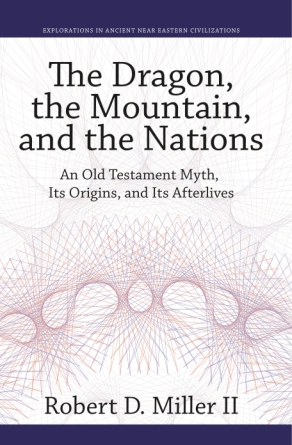
The Dragon, the Mountain, and the Nations
An Old Testament Myth, Its Origins, and Its Afterlives
$64.95 $35.72 (45% off!)
The dragon-slaying myth has a hoary ancestry, extending back long before its appearance in the Hebrew Bible, and a vast range, spanning as far as India and perhaps even Japan. This book is a chronicle of its trajectories and permutations. The target of this study is the biblical myth. This target, however, is itself a fluid. . . (more)
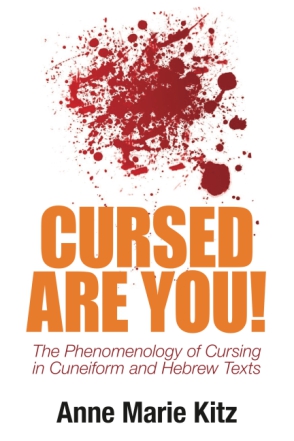
Cursed Are You!
The Phenomenology of Cursing in Cuneiform and Hebrew Texts
$59.50 $32.72 (45% off!)
In the ancient world, curses functioned in a way markedly different from our own, and it is into the world of the ancient Near East that we must go in order to appreciate the scope of their influence. For the ancient Near Easterners, curses had authentic meaning. Curses were part of their life and religion. They were not inherently magic or features of . . . . . (more)
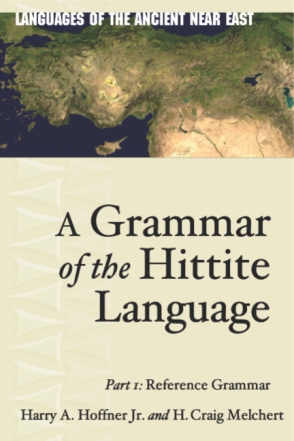
A Grammar of the Hittite Language
Part 1: Reference Grammar
$69.50 $38.22 (45% off!)
Hoffner and Melchert’s long-awaited work is sure to become both the standard reference grammar and the main teaching tool for the Hittite language. The first volume includes a thorough description of Hittite grammar, grounded in an abundance of textual examples. Moreover, the authors take into account a vast array of . . . (more)
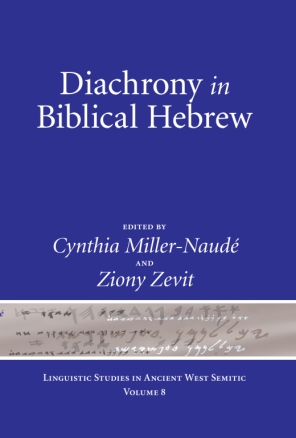
Diachrony in Biblical Hebrew
$64.50 $35.47 (45% off!)
Diachrony in Biblical Hebrew is an indispensable publication for biblical scholars, whose interpretations of scriptures must engage the dates when texts were first composed and recorded, and for scholars of language, who will want to read these essays for the latest perspectives on the historical development of Biblical Hebrew. For Hebraists and linguists interested in. . . (more)
new eisenbrauns books
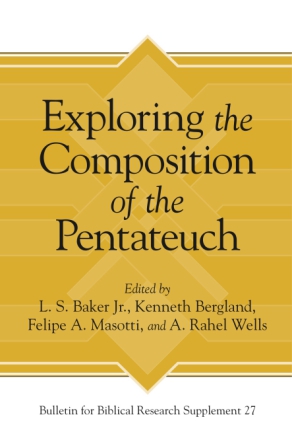
Exploring the Composition of the Pentateuch
Edited by L. S. Baker Jr., Kenneth Bergland, Felipe A. Masotti, and A. Rahel Wells
Just arrived!
Covering a wide spectrum of topics and diverging perspectives, the chapters in this book are grouped into two parts. The first is primarily concerned with the history of scholarship and alternative approaches to the development of the Pentateuch. The second focuses on the exegesis of particular texts relevant to the composition of the . . (more)
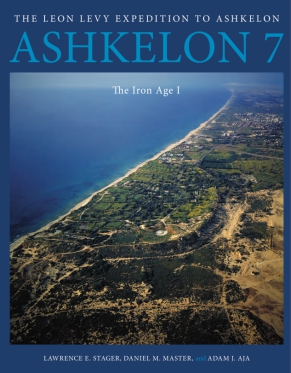
Ashkelon 7
The Iron Age I
Lawrence E. Stager, Daniel M. Master, and Adam J. Aja
Just arrived!
The Leon Levy Expedition to Ashkelon continues its final report series with a study of the Iron Age I. Following the dramatic collapse of the Mediterranean world at the end of the Bronze Age, new groups emerged across the Levantine littoral. One of those groups was the Philistines, famous archenemies of the Israelites in the Hebrew Bible. This volume shows how Ashkelon became. . . (more)
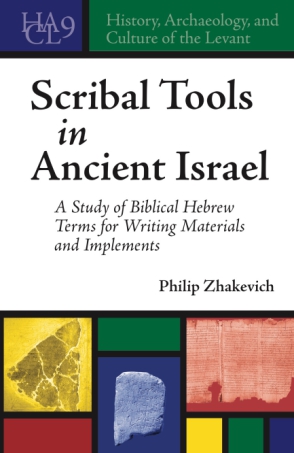
Scribal Tools in Ancient Israel
A Study of Biblical Hebrew Terms for Writing Materials and Implements
Philip Zhakevich
Just Arrived!
In this book, Philip Zhakevich examines the technology of writing as it existed in the southern Levant during the Iron Age II period, after the alphabetic writing system had fully taken root in the region. Using the Hebrew Bible as its corpus and focusing on a set of Hebrew terms that designated writing surfaces and instruments, this study synthesizes the semantic data. . . (more)
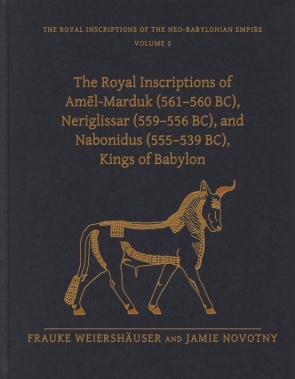
The Royal Inscriptions of Amēl-Marduk (561–560 BC), Neriglissar (559–556 BC), and Nabonidus (555–539 BC), Kings of Babylon
Frauke Weiershäuser and Jamie Novotny
Just Arrived!
Amēl-Marduk, Neriglissar, and Nabonidus were the last native kings of Babylon. In this modern scholarly edition of the complete extant corpus of royal inscriptions from each of their reigns, Frauke Weiershäuser and Jamie Novotny provide updated and reliable editions of the texts. The kings of the Neo-Babylonian Empire left hundreds of official inscriptions on objects such as. . . (more)
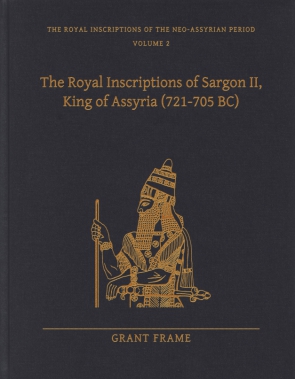
The Royal Inscriptions of Sargon II, King of Assyria (721–705 BC)
Grant Frame
Just Arrived!
The Neo-Assyrian king Sargon II was one of the most important and famous rulers of ancient Mesopotamia. In this volume of critically important ancient documents, Grant Frame presents reliable, updated editions of Sargon’s approximately 130 historical inscriptions, as well as several from his wife, his brother, and other high officials. Beginning with a thorough introduction to the reign of Sargon II and an overview of the previous. . . (more)
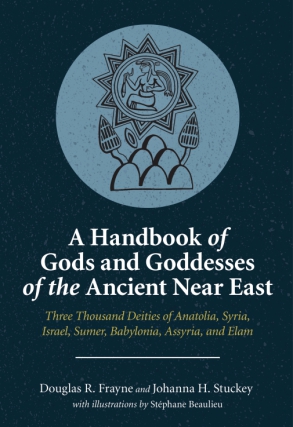
A Handbook of Gods and Goddesses of the Ancient Near East
Three Thousand Deities of Anatolia, Syria, Israel, Sumer, Babylonia, Assyria, and Elam
Douglas R. Frayne and Johanna H. Stuckey, with illustrations by Stéphane D. Beaulieu
In press!
From the tragic young Adonis to Zašhapuna, first among goddesses, this handbook provides the most complete information available on deities from the cultures and religions of the ancient Near East. . . (more)
virtual exhibits & events
We’re excited to offer these virtual exhibits and look forward to seeing you in person at conferences in the future. See the full list of virtual exhibits here.
awards & reviews
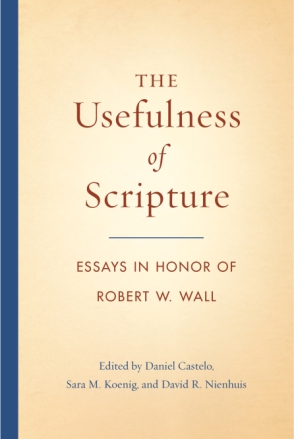
The Usefulness of Scripture
Essays in Honor of Robert W. Wall
Daniel Castelo, Sara M. Koenig, and David R. Nienhuis, eds.
“[T]he chapters of this book will tease the mind into serious reflection on the task of hermeneutics, on the value of theological interpretation, and of canonical readings.”—Derek Tovey, Auckland, New Zealand in Review of Biblical Literature, October 2020
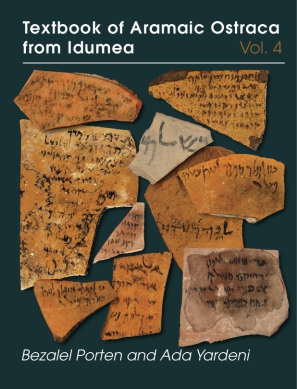
Textbook of Aramaic Ostraca from Idumea, volume 4
Bezalel Porten and Ada Yardeni
“Die Textausgaben sollten daher in keiner Bibliothek fehlen, denn sie erlauben in der Zukunft vielfältige Möglichkeiten der wissenschaftlichen Auswertung.”—W. Zwickel, Mainz, in Zeitschrift für die alttestamentliche Wissenschaft, 132 (2020): 508–9
new from psu press
VIEW Blue Lines, the PSU Press newsletter| Control your subscription options |
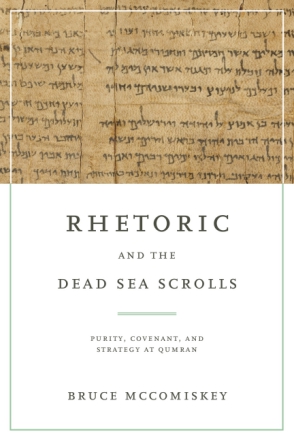 Rhetoric and the Dead Sea Scrolls
Rhetoric and the Dead Sea Scrolls
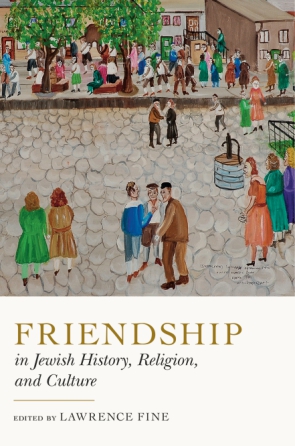 Friendship in Jewish History, Religion, and Culture
Friendship in Jewish History, Religion, and Culture

